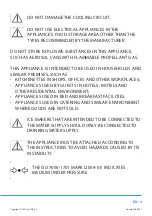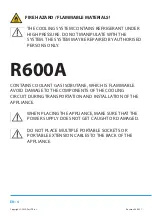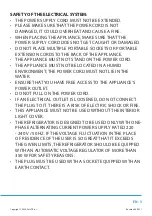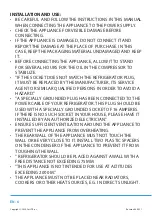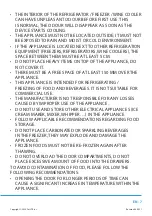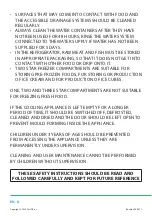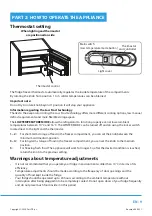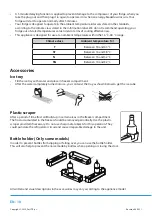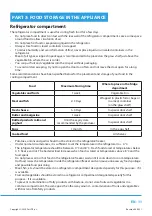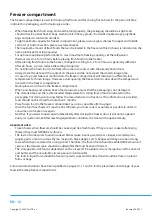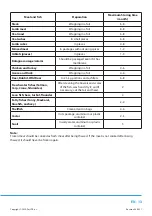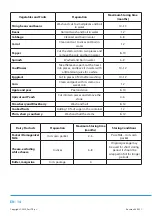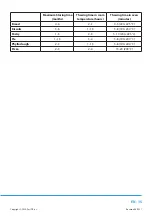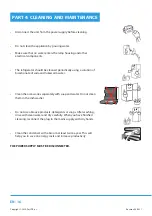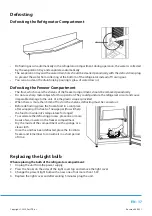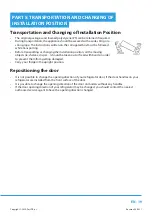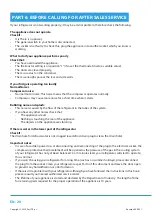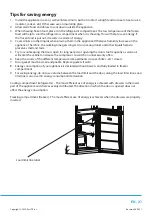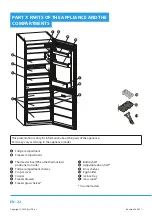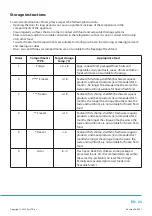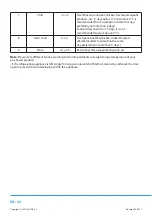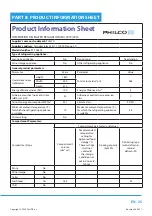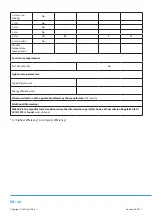
Copyright © 2020, Fast ČR, a. s.
Revision 08/2021
EN - 11
PART 3: FOOD STORAGE IN THE APPLIANCE
Refrigerator compartment
The refrigerator compartment is used for storing fresh food for a few days.
•
Do not place food in direct contact with the rear wall of the refrigerator compartment. Leave some space
around food to allow circulation of air.
•
Do not place hot food or evaporating liquid in the refrigerator.
•
Always store food in closed containers or wrapped.
•
To reduce humidity and avoid formation of frost, never place liquids in unsealed containers in the
refrigerator.
•
Meat of all types, wrapped in packages, is recommended to be placed on the glass shelf just above the
vegetable bin, where the air is colder.
•
You can put fruit and vegetables into the crisper without packaging.
•
To avoid cold air escaping, try not to open the door too often, and not leave the door open for a long
time.
Some recommendations have been specified below for the placement and storage of your food in the
cooling compartment.
Food
Maximum Storing time
Where to place in the fridge
department
Vegetables and fruits
1 week
Vegetable bin
Meat and fish
2–3 Days
Wrapped in plastic foil or bags or
in a meat container
(on the glass shelf )
Fresh cheese
3–4 Days
In special door shelf
Butter and margarine
1 week
In special door shelf
Bottled products milk and
yoghurt
Until the expiry date
recommended by the producer
In special door shelf
Eggs
1 month
In the egg shelf
Cooked food
All shelves
•
Potatoes, onions and garlic should not be stored in the refrigerator/freezer.
•
Under normal circumstances, it is sufficient to set the temperature in the refrigerator to + 4 °C.
•
The refrigerator temperature should be between 0 °C and 8 °C. Fresh food stored at temperatures below
0 °C freeze and rot. The bacterial load increases when food is stored at temperatures above 8 °C and the
food spoils.
•
Do not place warm or hot food in the refrigerator/freezer, wait until it cools down to room temperature.
Hot food raises the temperature inside the refrigerator/freezer and can cause unnecessary food spoilage
and possible food poisoning.
•
Meat, fish, etc. should be stored in a refrigerator compartment designated specially for this purpose - if it
is available.
•
Fruit and vegetables should be stored in a refrigerator compartment designated specially for this
purpose - if it is available.
•
To prevent contamination of fatty products with bacteria, do not store fruits and vegetables in a
common compartment. The same goes the other way around – contamination of fruits and vegetables
with bacteria from fatty products.



